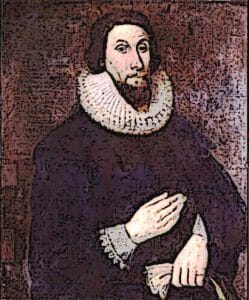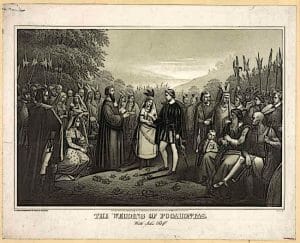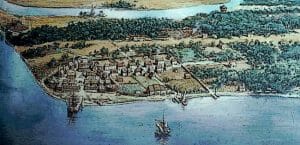Top 10 Colonial People
Sir Walter Raleigh
Sir Walter Raleigh was a one of the most well-known and controversial figures of the Elizabethan era England. Raleigh was an explorer and poet, apart from being a gentleman with a high standing at the English court. He was granted a royal charter from Queen Elizabeth to explore North American territories. His explorations and efforts led to the establishment of the famous Roanoke Colony, which was later dubbed as the Lost Colony in history.
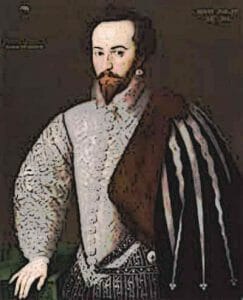
Sir Walter Raleigh was a one of the most well-known and controversial figures of the Elizabethan era England
William Bradford
William Bradford was one of the Pilgrim Fathers who established the earliest British settlements in North American. Bradford hailed from a wealthy English family. He converted to Puritan faith at an early age. To escape persecution and lead Puritans to religious freedom, Bradford played an important role in planning a voyage to North America.
He and other Pilgrims arrived in North America on board the ship Mayflower. Bradford later participated in the famous Mayflower Compact. He would then go on to serve as the governor of the Plymouth colony from 1621 to 1657.
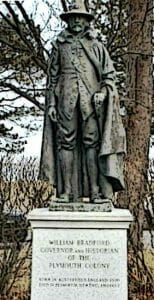
William Bradford was one of the Pilgrim Fathers who established the earliest British settlements in North American
William Penn
William Penn was the founder of the British colony of Pennsylvania in North America. He established Pennsylvania in 1682 as an experiment where religious freedom could exist for everyone. Penn hailed from a notable British family, his father being Admiral Sir William Penn. Penn was a Quaker and was actively involved with the English Quaker community.
He sought to establish a settlement of the Quaker community in North America and received a charter from King Charles II to this purpose. Penn envisioned the colony as a holy experiment where the principles of liberty and democracy would rule. He established friendly relations with Indians and oversaw the establishment of the city of Philadelphia.
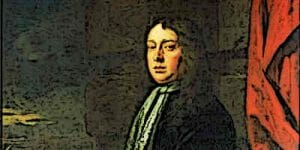
John Winthrop
John Winthrop served as the governor of the Massachusetts Bay Colony for nearly 12 years. He was among the early English immigrants to North America. Being a Puritan, he reached North America chiefly to escape the persecution of Puritans by King Charles I. He arrived at American in 1630 and was elected to lead the Massachusetts colony.
In contrast to William Penn, John Winthrop favored a more authoritative style of administration. Winthrops long rule, his policies and his vision for the colony left a decisive impact on the development of the colony. His son would later go on to establish the Connecticut Colony.
John Rolfe
John Rolfe was an American colonist who was among the first British settlers in North America. Rolfe settled in the Jamestown colony. The colony had to face troubled times and the colonists often had to face starvation. Rolfe played an instrumental role in alleviating these problems. He married Pocahontas, daughter of the Native Indian chief of the Powhatan tribe.
This marriage ushered in an era of peace between Powhatan and the colonists. Rolfe also found a way to successfully grow tobacco in Virginia and then cure it for export. His pioneer work in this area laid the foundations for the tobacco-based Virginian economy, which was to become a key North American export.
Pocahontas
Pocahontas was the first Native American woman to marry a European man. She married John Rolfe in 1614. Pocahontas was the daughter of the Powhatan chief. During the early years of the Jamestown settlement, the British settlers came into conflict with the Powhatan. One of the captured colonists, John Smith, escaped with his life thanks to the intervention of Pocahontas. \
She was later captured by the colonists. During captivity, Pocahontas embraced Christianity. Once freed, she chose to remain with the colonists and married John Rolfe. She then traveled to Britain with John Rolfe and was viewed by the English society as a novelty. During their return trip to Virginia, Pocahontas died along the way in 1617.
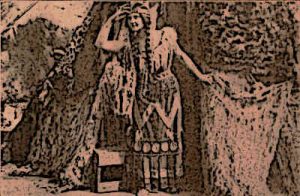
Pocahontas 1910 Famous Native American People Pocahontas
Thomas Dale
Thomas Dale served as the deputy-governor of the Virginia Colony in its earliest days. He lived at the same time as John Rolfe and Pocahontas. Dale first served the colony as deputy-governor in 1611 and then again from 1614-1616. During these periods, he brought a new energy and hope to the colony.
He implemented new reforms which paved the way for economic prosperity and surplus production. He also rebuilt the Jamestown to improve the overall conditions and health of the inhabitants. When he returned to England, John Rolfe and Pocahontas accompanied him during the sea voyage.
George Washington
George Washington famously led the American Continental Army during the Revolution. Before the Revolution, however, Washington played an important part during the colonial period as well. He fought in the French and Indian War on the British side. His courage and resourcefulness in the war led him to awards which made him the most distinguished colonial soldier of the war.
Washington was later elected to the House of Burgesses. He actively opposed British taxes and high-handed policies towards the colonies. When the Revolutionary War broke out, he was seen as the most seasoned and experienced military individual in the Colonies. Consequently, he was asked to lead the American colonies.
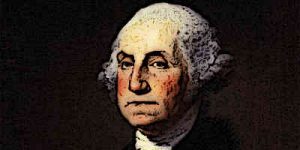
Benjamin Franklin
Benjamin Franklin was an inventor, writer, politician and scientist. Franklin apprenticed for a printer at an early age and later launched his own printing business. He was deeply concerned with the matter of educating the American public. To this end, he established a subscription library, discussion group, philosophical society and various other communities.
He also conducted experiments and wrote in the newspaper. Just before the American Revolution, Franklin had already established himself as one of the leading politicians, visionaries and public figures in the Colonies.
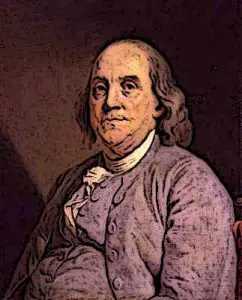
Benjamin Franklin Founding Father and President of United States of America
Thomas Jefferson
Thomas Jefferson was one of the most notable Founding Fathers of the United States. During the colonial period, Jefferson emerged to a position of prominence in the Colonies. He actively opposed the British policies in the Colonies and wrote popular pamphlets against British measures.
He would later join the Virginia House of Burgesses. From this position, he later served in the Continental Congress, becoming a key figure in the early developments in American independence. Jefferson also frequently took an anti-slavery stance and fought legal cases for the freedom of several slaves.
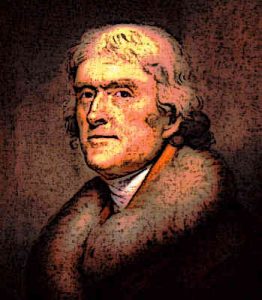
Thomas Jefferson Founding Father 3rd President of America Portrait Painting
- Colonial Period
- British and French colonies
- Colonial America Timeline – Key Dates from 1606 to 1776
- Colonial Farm Family Life: Daily Struggles and Survival
- Colonial Homes of the 17th Century: Architecture, History, and Design
- Colonial Houses
- Colonial Period Timeline
- Colonial Period: Top 10 Defining Events
- Colonies of New England
- Colony Life
- Discover Who Wrote the Mayflower Compact
- Dutch Colonization
- Early Settlers
- French Colonization
- Middle Colonies
- Native American Timeline: Key Events in the Colonial Era
- Plymouth Colony – Pilgrims
- Red Coats in Colonial Times
- Spanish Colonization
- The 13 Colonies: Foundations of Early America
- The British Colonization of the Americas: Beginnings and Expansion
- The Colonial Wars: Conflict and Empire in Early America
- The House of Burgesses
- The Salem Witch Trials
- Top 10 Colonial People
- Top 10 Key Events of the Colonial Period in American History
- What was the Seven Years War?
- Who Were the Puritans?
- Why the Pilgrims Chose to Land Where They Did
- William Penn
